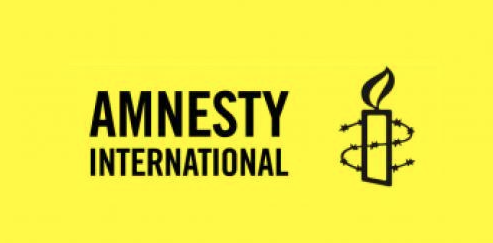Spokespersons are available for interviews
World leaders must address the Kingdom’s heinous human rights record as Saudi Arabia assumes the presidency of the G20 global economic forum, said Amnesty International today. Saudi Arabia is set to assume the presidency of the G20 on 1 December and next year’s G20 summit will be held in Riyadh.
The organization urges G20 members, to pressure the Saudi Arabian authorities to commit to end the patterns of egregious human rights violations. Member states of the G20 that continue to profit from the arms trade with Saudi Arabia, including the USA, UK and France, must consider the extent to which they are complicit in human rights violations committed by the Saudi Arabia led coalition in the conflict in Yemen, and cease such transfers until these violations have been remedied.
“Saudi Arabia steps up to the G20 presidency amid a new wave of arbitrary arrests of peaceful critics, with many human rights defenders still languishing behind bars, and just over a year since the horrifying killing of Jamal Khashoggi. World leaders in the G20 must pressure Saudi Crown Prince Mohammed bin Salman to ensure enjoyment of all human rights including freedoms of expression, association and peaceful assembly,” said Heba Morayef, Amnesty International’s MENA Regional Director.
“The G20 leaders must not continue to ignore the Kingdom’s horrendous human rights record for the sake of lucrative business ties. As President of the G20, Saudi Arabia is responsible for ensuring the issues it has placed on the G20 agenda are addressed in ways which achieve the Sustainable Development Goals, including fair economic growth, tackling climate change, energy, food and water security and women’s empowerment. How can a country with such an appalling human rights record at home ensure respect for human rights in such an important international process?”
Saudi Arabia has an appalling human rights record. The authorities have systematically carried out arbitrary arrests targeting peaceful activists, journalists, academics and women human rights defenders, as well as executions following unfair trials and routine torture and other ill-treatment in custody.
The country’s leading women human rights defenders remain on trial since March 2019 for their peaceful human rights activism and work to promote women’s rights in the country. The authorities also continue to detain without charges scores of individuals for their peaceful expression or support for reforms. Almost a year following the extrajudicial execution of Jamal Khashoggi there has been no accountability. In April 2019, the authorities carried out a mass execution of 37 men, the majority of whom were executed following grossly unfair trials. At least 15 of those executed told the court that their “confessions” extracted through torture, however, the court failed to investigate their allegations and convicted to death.













